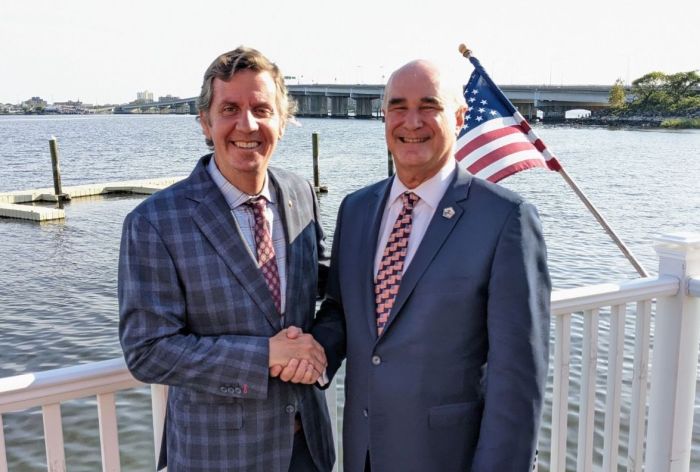By William Lewis
In a recent interview, Thomas Long, chairman of the Queens Conservative Party, gave his views of various current political topics.
As for Joseph Lhota getting only 24 percent of the vote in the general mayoral election when he had the Republican and Conservative parties’ endorsements, Long indicated that the low voter turnout contributed to Lhota’s poor showing, in addition to opponent Democrat Bill de Blasio’s having strong financial backing Lhota did not have.
Long looks forward to next year’s elections. He thinks the Republican Party, with support from the Conservative Party, may pick up two or three U.S. congressional seats upstate.
Long also mentioned that health insurance will be a major issue next year, especially in U.S. Senate and congressional races. With the problems in implementing Obamacare, this matter will cause a lot of interest. Long further indicated that those voters who are losing their medical insurance policies and having to pay higher for the federal plan will raise many questions.
As Long discussed the present political situation in Queens, he said his party would be giving priority to trying to win back state Senate seats lost in recent past elections, including seats held by former Sens. Frank Padavan and Serf Maltese.
He discussed the possibility that attorney Wendy Long, who won the Republican U.S. Senate primary race last year, may be interested in running for public office again next year. Wendy Long lost to incumbent U.S. Sen. Kirsten Gillibrand (D-N.Y.) after winning decisively in the Republican primary.
In the future, Long sees a bigger role for the Conservative Party statewide. He believes the Conservative Party represents the working middle class. He also indicated that the state Conservative Party represents change.
In the early days of the city Conservative Party during the 1960s, the party played a major role in political struggles. For instance, in 1965 William Buckley, running on the Conservative line against liberal Republican John Lindsay and Democrat Abe Beame, was able to get more than 13 percent of the vote citywide.
During Lindsay’s eight years as mayor when he had Liberal Party endorsement, the Conservative Party opposed him.
In 1970, James Buckley was elected to the U.S. Senate on the Conservative line alone, without Republican endorsement. He also had an independent line.
The state Conservative Party was first formed in 1962 and has usually supported most Republican candidates in addition to at times running its own candidates, and its has also endorsed some Democratic candidates.
Today, the state Liberal Party has been replaced on the city ballot by the Working Families Party, which seems to have strong union support.
In 1989, ’93 and ’97, Rudy Giuliani ran for mayor without Conservative Party endorsement, although he had Liberal Party endorsement in all three races. He would lose to David Dinkins in ’89 but beat him in ’93, when Dinkins ran for re-election.
In all, third parties have been important in New York state. They have many times provided the margin of victory for major party candidates.
In the years ahead, we will see increased political activities by the Conservative and Working Families parties. Major party candidates, as in the past, will seek third party support.






























